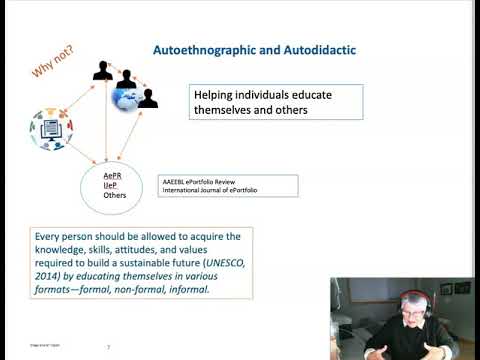Author: Rita Zuba Prokopetz
Institution: Red River College / Athabasca University
Country: Canada
Topic: Applications of Open Education Practices/Open Pedagogy/Open Education Research
Sector: Higher Education
UNESCO Area of Focus: Facilitating int cooperation
Session Format: Presentation
Abstract
Electronic portfolios (ePortfolios) are a technology-enabled learning site that enable the creation of content, reflection on learning, documentation of growth over time, and the sharing of knowledge, skills, and resources. For students, they are reflective, curated repositories mediated through interaction with peers and mentors within a course, program, or across disciplines. For educators, they are a virtual library of curated open educational resources on which they rely to perform their craft. For researchers, they have become field sites where meaningful observations of online communities can take place. ePortfolios emerged as a sophisticated pedagogy during the mid-1990s with the birth of Internet-based web technologies, and have become a vehicle for information sharing, policy revision, curriculum update, assessment innovation, course redesign, peer-to-peer learning, and rich research in spaces of the Internet. These pedagogical tools are embedded in courses and programs and serve many purposes for the various stakeholders in educational institutions worldwide. Students have a platform where they can introduce themselves to potential employers nationally and internationally; demonstrate evidence of knowledge and skills; and showcase their accomplishments and learning to date. Educators can immerse themselves in an innovative professional self-development journey in order to engage in critical reflection and better position themselves as online educators. Administrators can continue the discussion on course- and program-level innovation, curriculum design, and innovative assessment format with colleagues at a national and international level. Policy makers can create their own ePortfolios to model the relevance of lifelong and lifewide learning and to show how these educational tools underpin innovation in regulations, guidelines, and policy making. As an elegant form of open pedagogy, ePortfolios are well positioned to transform past practices in the institution of education. This creative way to learn, co-create, and collaborate has the potential to help individuals in every nation demonstrate their knowledge, skills, attitudes, and values while educating themselves and others in a formal, non-formal, or informal format.Keywords
ePortfolios, open education, course redesign, curriculum update, innovative assessment, sustainable learning, research site, professional self-development


